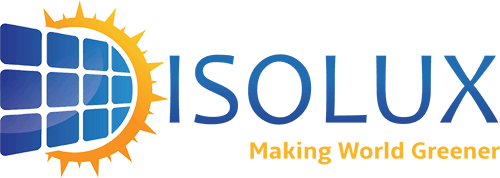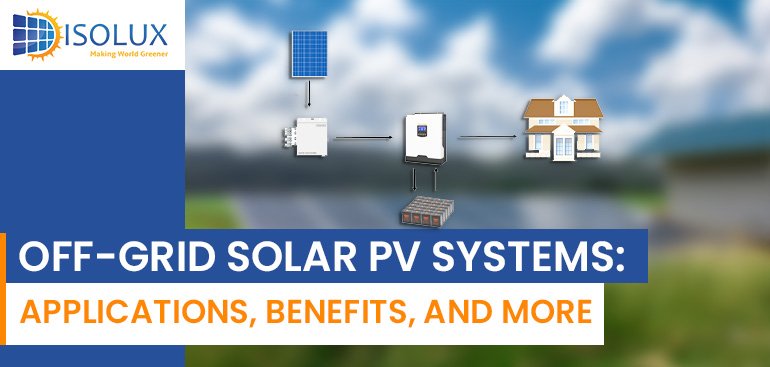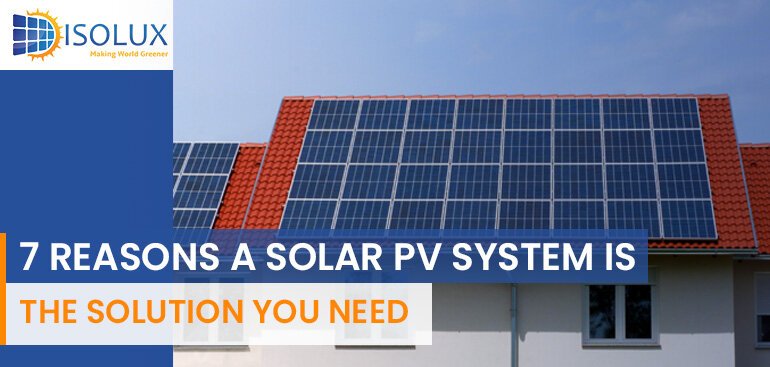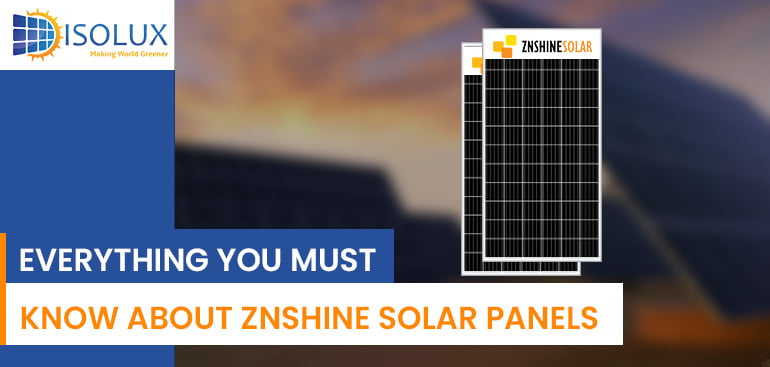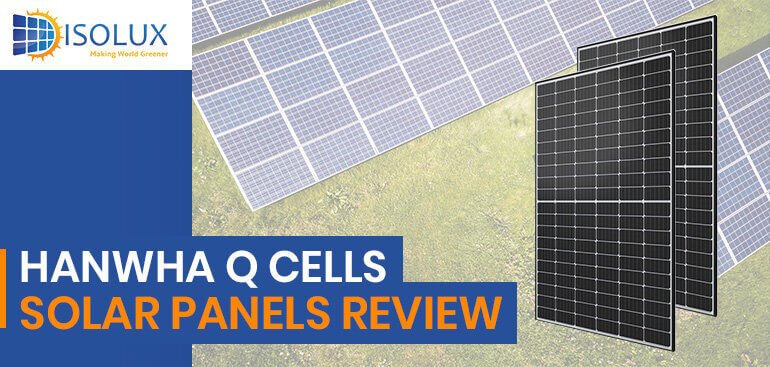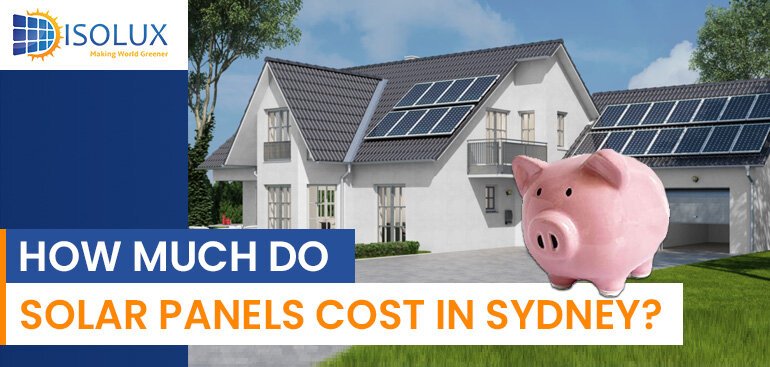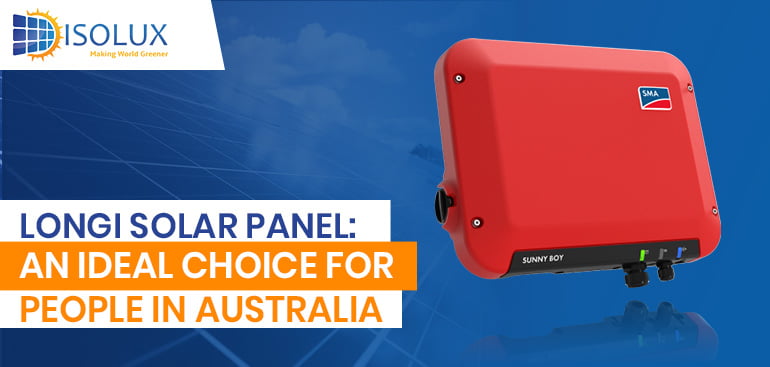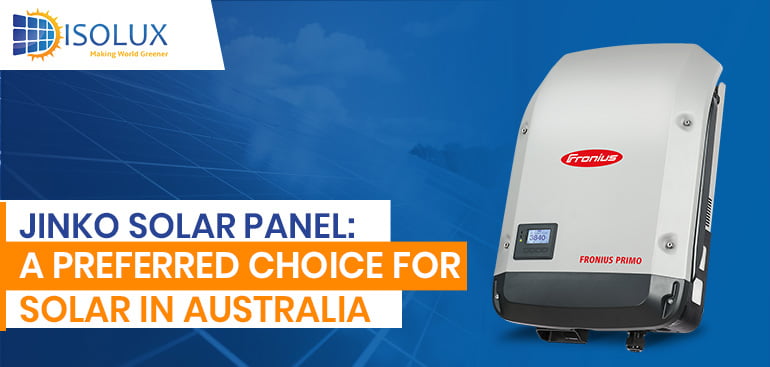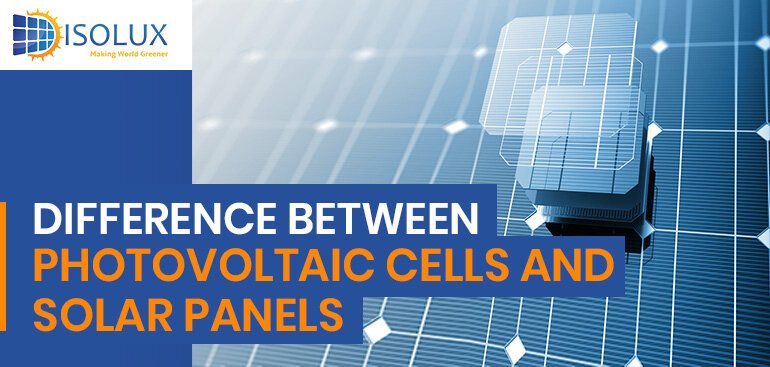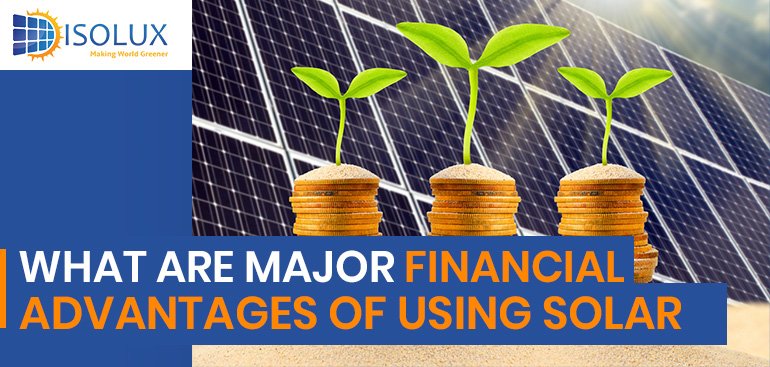Solar power is generated by solar panels after absorbing solar radiation. Due to the rising costs of power and electricity, a number of households and businesses are switching over to solar power systems. While making this decision, consumers have to choose between an on-grid and off-grid solar PV system.
The fact is solar energy has become a buzzword in the world of renewable energy. Nowadays, more and more people are switching over to solar energy. It not only saves power, but it is also a clean and green source of energy, as per the information shared by the best solar company Sydney.
Are you looking out for solar panel installation at your home in Australia?
Are you searching for the best solar panels Sydney?
When it comes to solar panel installation, there are many big names available in the Australian market.
One of the leading solar panels in Australia is Q Cells Solar Panels. The best solar company in Sydney considers it the top-performing solar panel. In this blog, you will learn about this solar panel based on the comments shared by the top solar companies and live Hanwha Q Cells solar panels review.
Let’s dive right in!
Q Cell Solar Panels Review
Unmatched Efficiency and Performance
Hanwha Q CELLS solar panels are renowned for their exceptional efficiency and outstanding performance. Leveraging cutting-edge technology and innovative design, these panels maximize energy conversion and deliver optimal results. With their high module efficiency, Q CELLS panels ensure that you generate more electricity from the same amount of sunlight, translating into greater energy savings for you.
Advanced Solar Cell Technology
One of the key factors contributing to the superior performance of Hanwha Q CELLS solar panels is their advanced solar cell technology. These solar panels utilize Q.ANTUM technology, a revolutionary cell concept that combines several innovative features to enhance overall efficiency.
Q.ANTUM technology incorporates specially developed passivation techniques, intricate multi-layer coatings, and state-of-the-art rear-side passivation to minimize energy losses and maximize power output. This means that Hanwha Q CELLS panels can generate more electricity even in low-light conditions, making them an ideal choice for areas with varying weather patterns.
Unrivaled Durability and Longevity
Investing in solar panels is a long-term commitment, and durability is a crucial aspect to consider. Hanwha Q CELLS understands this, and their panels are built to last. The company employs stringent quality control measures and rigorous testing to ensure that its panels can withstand the harshest environmental conditions and continue performing optimally for decades.
Hanwha Q CELLS solar panels feature a robust frame design that offers exceptional stability and protection against mechanical stress. This ensures that the panels remain intact, even in extreme weather events such as heavy snowfall or strong winds. Additionally, Q CELLS panels undergo rigorous testing for resistance to corrosion, temperature fluctuations, and potential-induced degradation (PID), guaranteeing their long-term reliability.
Aesthetically Pleasing and Flexible Design
Solar panels shouldn’t just be functional; they should also seamlessly integrate into your home or business. Hanwha Q CELLS understands the importance of aesthetics, and their panels feature a sleek, black design that adds a touch of elegance to any property. Whether you have a residential rooftop or a commercial building, Q CELLS solar panels effortlessly blend in with their surroundings, enhancing the visual appeal of your property.
Furthermore, Hanwha Q CELLS offers a range of panel sizes and configurations to suit various installation requirements. This flexibility allows for easy customization, ensuring that the panels can be seamlessly integrated into different spaces, including both residential and commercial applications.
Industry-Leading Warranty and Customer Support
When it comes to choosing solar panels, peace of mind is essential. Hanwha Q Cells offers an industry-leading warranty and comprehensive customer support to provide you with a hassle-free experience. With their extensive warranty coverage, you can be confident in the performance and longevity of your Hanwha Q CELLS solar panels.
In the unlikely event that you encounter any issues or have questions, Q Cells’ dedicated support team is always ready to assist you. Their knowledgeable professionals can provide guidance on installation, maintenance, and troubleshooting, ensuring that you receive the necessary support throughout your solar energy journey.
How Much Do Q Cells Solar Panels Cost?
When considering the installation of solar panels, one important factor to consider is the cost. The price of Q Cells solar panels may vary depending on several factors, including the size and type of the solar panels, installation requirements, location, and any additional components or services needed for the installation. It is recommended to obtain a personalized quote from a reputable solar installer to get an accurate cost estimate tailored to your specific needs.
Why Choose Q Cells Solar Panels?
When it comes to the latest and modern solar technologies, no company in the world can surpass Q Cells.
They have four state-of-the-art R&D centers, which makes it the choice of each of the best solar company Sydney.
Since Q Cells make use of the latest technologies, their customers get the best solar panels in Australia.
Buying Q Cells solar panels means a shorter payback period for the customers. This is due to the 12-year product warranty + 25-year performance warranty along with an efficiency of more than 19%.
Q Cells solar panels are not only tested in lab conditions but also in the field. These solar panels have proven performance in Australian climatic conditions.
In 2012, Q Cells modules were installed in the Desert Knowledge Australian Solar Centre. Since then, their performance has been exceptional.
It offers a wide range of solar panels giving homeowners in Australia the flexibility to choose the best series for their home.
The product series of Hanwha Q Cells solar panels available in the Australian market has an efficiency of around 17.1% to 20.1%.
All Q Cells solar panels make use of a technology named Q. ANTUM to deliver remarkable performance in the real-world environment. This technology functions on PERC (Passivated Emitter Rear Cell) technology and is enhanced even further by a special nano-coating.
Different types of Q Cells Solar Panels:
Q. Power Series
1. Most cost-effective solar panels belong to this series
2. Polycrystalline cell type
3. Panel efficiency of 17.4%
4. Annual power degradation of 0.6%
5. Maximum power output is 280w
Q. Peak Series
1. Highly versatile and best-selling solar panels belong to this series
2. Monocrystalline Q. ANTUM half-cell type
3. Panel efficiency of 20.8%
4. Annual power degradation of 0.54%
5. Maximum power output is 390w
Q. Series
1. Monocrystalline cell type
2. Panel efficiency of 20.1%
3. Annual power degradation of 0.54%
4. Maximum power output is 360w
Q Cells Warranty for Australian Customers
Q Cells values customer satisfaction and provides a comprehensive warranty for their solar panels to ensure peace of mind for Australian customers. The warranty terms and conditions may vary depending on the specific product model and region, so it is essential to review the warranty documents provided by Q Cells or consult with authorized dealers or installers for precise information.
Product Warranty: Q Cells provides a product warranty that covers manufacturing defects, ensuring that the solar panels are free from defects in materials and workmanship. This warranty generally spans a specified number of years from the date of purchase.
Performance Warranty: In addition to the product warranty, Q Cells often provides a performance warranty that guarantees the solar panels’ power output over a specified period. This warranty assures customers that the panels will continue to deliver a certain level of energy production throughout the warranty period.
It is crucial to read and understand the terms and conditions of the warranty to be fully aware of what is covered and any potential limitations or exclusions. Q Cells may require proper installation, compliance with maintenance guidelines, and adherence to specified operating conditions for the warranty to remain valid.
Q Cells Solar Panels: Pros and Cons
Pros
High Efficiency: Q Cells solar panels are known for their high efficiency, allowing them to convert a greater portion of sunlight into electricity. This can result in higher energy production and better performance in limited space.
Advanced Technology: Q Cells integrates advanced technologies, such as PERC and Q.ANTUM DUO, into their solar panels. These innovations enhance light absorption and minimize power loss, maximizing overall system efficiency.
Durability: Q Cells solar panels are built to withstand various weather conditions, including wind, rain, and snow. They undergo rigorous quality control processes, ensuring long-term durability and reliable performance.
Environmental Impact: By choosing Q Cells solar panels, you contribute to reducing greenhouse gas emissions and promoting sustainable energy generation. Solar power is a clean, renewable energy source that helps combat climate change.
Warranty Coverage: Q Cells offers warranty coverage for their solar panels, providing customers with peace of mind and protection against potential manufacturing defects and performance issues.
Cons
Upfront Cost: The initial cost of installing solar panels, including Q Cells products, can be a significant investment. However, it’s important to consider the long-term financial benefits, such as energy savings and potential incentives or rebates.
Space Requirement: Achieving maximum energy production with solar panels may require an adequate amount of roof or ground space. Depending on the available area, the desired energy output may need a more significant number of panels.
Dependence on Sunlight: Solar panels generate electricity when exposed to sunlight, meaning their energy production is dependent on weather conditions. Reduced sunlight, such as during cloudy days, can temporarily affect power output.
Complex Installation: The installation process of solar panels can involve various technical aspects, including electrical connections and mounting systems. Hiring a professional installer ensures proper installation and system performance.
Credits and Awards: Recognizing Q Cells Excellence
Q Cells solar panels have garnered numerous credits and awards, solidifying their position as a top-tier solar technology provider. The company’s commitment to innovation, performance, and customer satisfaction has been acknowledged by various industry bodies.
Some notable credits and awards received by Q Cells:
Intersolar Award: Q Cells has been the recipient of multiple Intersolar Awards, a prestigious recognition within the solar industry. These awards highlight Q Cells advancements in technology, such as their groundbreaking module design and exceptional efficiency.
Photovoltaic Technology Award: Q Cells has also been honored with the Photovoltaic Technology Award, which recognizes companies for their outstanding contributions to the field of photovoltaic technology. This accolade underscores Q Cells’ commitment to pushing the boundaries of solar panel performance.
Top Brand PV Seal: Q Cells has consistently achieved the Top Brand PV seal, a distinction given to companies that demonstrate exceptional quality, reliability, and customer satisfaction. This seal reflects the high regard in which Q Cells panels are held by both industry experts and solar customers.
Q Cells Panels for Rooftop Solar: An Ideal Choice
When it comes to rooftop solar installations, Q Cells panels offer numerous benefits that make them an excellent choice.
Here are some key reasons why Q Cells panels are well-suited for rooftop solar:
High Efficiency: Q Cells panels boast high-efficiency ratings, meaning they can convert a greater percentage of sunlight into usable electricity. This is particularly advantageous for rooftop solar, as limited space requires maximizing energy generation per square meter.
Compact and Lightweight Design: Q Cells panels are designed to be compact and lightweight, making them easier to install on rooftops without adding excessive weight or compromising structural integrity. Their sleek profile also ensures seamless integration with the roof’s aesthetics.
Durability and Longevity: Q Cells panels undergo rigorous quality control processes, ensuring their durability and long-term performance. They are built to withstand various weather conditions, including hail, wind, and extreme temperatures, providing peace of mind for rooftop installations.
Superior Temperature Coefficient: Q Cells panels exhibit a low-temperature coefficient, allowing them to maintain optimal performance even in hot climates. This is crucial for rooftop solar, where panels can be exposed to elevated temperatures due to proximity to the roof surface.
Industry-Leading Warranty: Q Cells stands behind the quality and performance of its panels by offering an industry-leading warranty. This ensures that your investment in rooftop solar is protected, and any potential issues can be addressed promptly.
Q Cells Company History: Pioneers in Solar Technology
Q Cells has a rich history in the solar industry, marked by its pioneering spirit and commitment to innovation.
Foundation: Q Cells was founded in 1999 in Thalheim, Germany, to revolutionize the solar energy landscape through advanced photovoltaic technology.
First Mass Production: In 2001, Q Cells achieved a significant milestone by commencing mass production of solar cells and modules, establishing itself as a key player in the industry.
Focus on Research and Development: Q Cells has consistently invested in research and development to drive technological advancements. Their relentless pursuit of innovation has resulted in several breakthroughs, including the development of high-efficiency solar cells and cutting-edge module designs.
Global Expansion: Over the years, Q Cells expanded its operations globally, establishing manufacturing facilities and offices in various countries. This expansion allowed Q Cells to cater to a diverse range of markets and customers worldwide.
Part of Hanwha Group: In 2012, Q Cells became a part of the Hanwha Group, a leading global conglomerate. This strategic partnership further strengthened Q Cells’ position in the solar industry and provided access to additional resources for continued growth and development.
Today, Q Cells continues to be at the forefront of solar technology, pushing boundaries and shaping the future of renewable energy.
Conclusion
Hanwha Q CELLS solar panels represent a top-tier option for harnessing the abundant power of solar energy. With their unmatched efficiency, advanced technology, durability, and aesthetic appeal, Q CELLS panels are a wise investment for both residential and commercial applications.
At Isolux, we highly recommend Hanwha Q CELLS solar panels for their exceptional performance and reliability. Experience the benefits of clean, renewable energy while reducing your carbon footprint. Make the switch to Hanwha Q CELLS solar panels today and unlock the true potential of solar energy.
Get an obligation free quote from Isolux Solar.
Sydney is a bustling city with a growing population and increasing energy demands. With electricity prices on the rise, many homeowners are turning to solar energy as a cost-effective and eco-friendly alternative. But, one question on everyone’s mind is: “How much do solar panels cost in Sydney?”
To answer this question, we must take into account several factors, including the size of the solar panel system, the type of panels used, and the location of the installation. In this article, we will provide an overview of the solar panel cost and what you can expect to pay for a system that meets your specific energy needs.
In Sydney, the home solar panel system of 6.6kW and a high-quality installation will cost between $4,000.00 up to $8,000.00.
Here is the approximate cost of a solar system installation with Tier 1 solar panels.
| System size | Number of panels | Cost Range |
| 1.5kW | 4 | $2,500 – $4,000 |
| 2kW | 5 | $3,000 – $4,500 |
| 3kW | 7 | $3,500 – $5,000 |
| 4kW | 10 | $4,000 – $6,000 |
| 5kW | 12 | $4,500 – $8,000 |
| 6.6kW | 16 | $5,500 – $9,000 |
| 7kW | 17 | $6,500 – $10,000 |
| 8kW | 19 | $7,500 – $11,000 |
| 10kW | 24 | $8,000 – $13,000 |
You are not the only one. There are several Australians who are trying to figure out the price of solar panels and their installation costs for their residential properties. As the prices of electricity in Australia are skyrocketing, many are thinking about getting the best solar panels in Sydney installed on their premises.
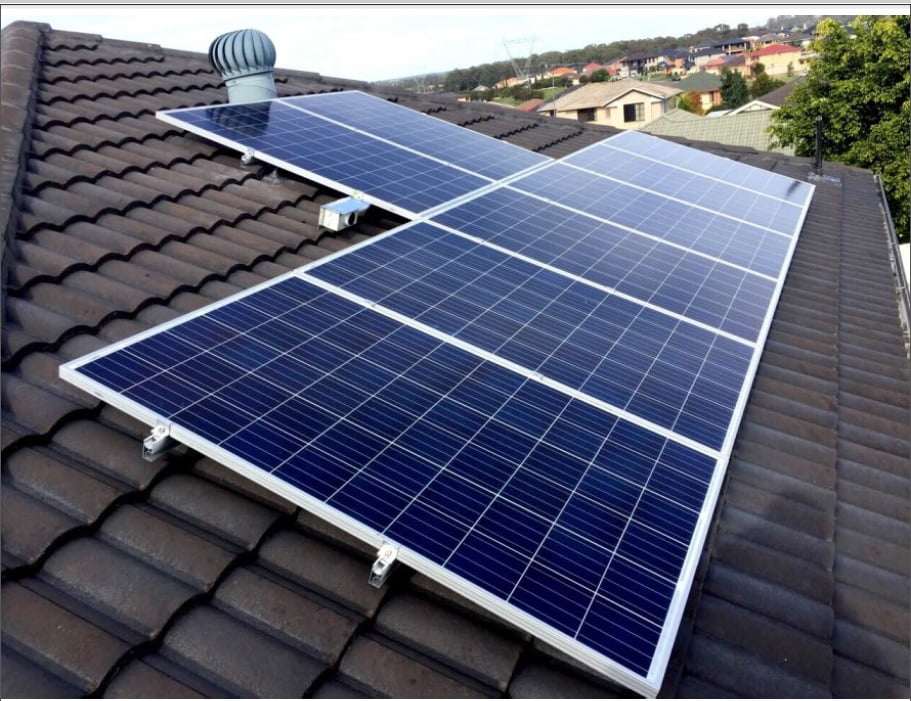
Price in Australia is significantly dropped, a decade ago it will cost around $10,000 for 1kW, but now you’ll get a large system with more capacity for the same price.
Also, the price you pay for a solar PV system in 2023 is heavily subsidized by the Australian government-run solar rebate scheme.
The value of rebate fluctuation on the basis of STCs.
How Do Solar Panels Work?
Solar panels are made out of photovoltaic cells that convert the sun’s energy or light into electricity.
Layers of semiconducting material such as silicon are used to sandwich the photovoltaic cells. Each layer has different electronic properties which are energies by photons from sunlight, which create an electric field. This is called the photovoltaic effect.
At Isolux, we have installed solar systems of different sizes and we design them as the individual needs. A solar PV system can be customized and one size does not fit all.
We believe in a good and high-quality Solar PV system, so we’ll help you to choose the right for your system.
How Much Do The Solar Panels Cost in Sydney, NSW?
Depending on the size of the system. It costs between $2,950 to $8,000 for a standard solar power system in New South Wales.
Most solar companies in Australia include the solar panel installation cost along with the price.
For example, if company ‘X’ is advertising the cost of a 6.6 kW solar system as $4,000, then the price includes the installation.
If a company asks for separate installation charges, it is most likely to be an unreliable company.
To claim the government rebate, your rooftop solar panel installation needs to be done by a certified solar installer in Sydney.
How Much Do Solar Panels Cost On Average?
For a top-quality 6.6 kW solar system, the average solar panels cost in NSW starts from $4,000 to $8000 including the installation.
This is the price for the most common size of solar panels (6.6kWh) after the application of the government rebate.
The average cost of the solar system by size would vary from one state in Australia to another.
Why Does the Cost of Solar Panels Differ in Australia?
Consider the following example:
A 9.9 kW solar system would cost between $4,450 and $5,550 in Sydney.
Do you know what causes this difference?
The rebate each state pays per kWh of electricity produced by the solar system is different.
The number of solar panels required to generate the same amount of electricity also differs from one state to another.
How Much Does One Solar Panel Cost in Australia?
The cost of a single solar panel in Australia can range from around AUD $200 to AUD $600, depending on the brand, type, size, capacity, and quality of the solar panel. However, it’s important to note that solar panels are typically installed as part of a larger system, so the total cost would include additional components such as inverters, mounting equipment, and installation fees.
Home Solar Panels: For residential solar panels in Australia, you can expect to pay anywhere from AUD $200 to AUD $400 per panel. These are typically 250 to 400-watt panels.
Commercial: Larger, higher-capacity panels used for commercial or industrial purposes can cost more, ranging from AUD $300 to AUD $600 or more per panel.
Premium or High-Efficiency Panels: Premium or high-efficiency solar panels from well-known brands often come at a higher price point, ranging from AUD $400 to AUD $800 or more per panel.
Please note that these prices are approximate and may have changed in real-time. The best way to get accurate pricing for solar panels in Australia is to contact local solar panel installation companies in Australia and request quotes based on your specific requirements.
Additionally, Government rebates and incentives are available to help reduce the cost of solar panel system installation. Prices can also vary depending on your location within Australia.
How Many Solar Panels are Needed to Power the Entire House?
The number of solar panels needed to power a complete house in Australia depends on the size of the home and the amount of power that is going to be consumed.
Read Related Blog: How Many Solar Panels Do I Need To Power My House
Factors Influence the Cost of Solar Panels in Sydney
1. Location of your property
2. Amount of energy needed
3. Size of the solar panel system
4. Place where the solar system will be mounted
5. Nature of the solar panels used
Here are the various factors that directly influence solar panel costs in Sydney.
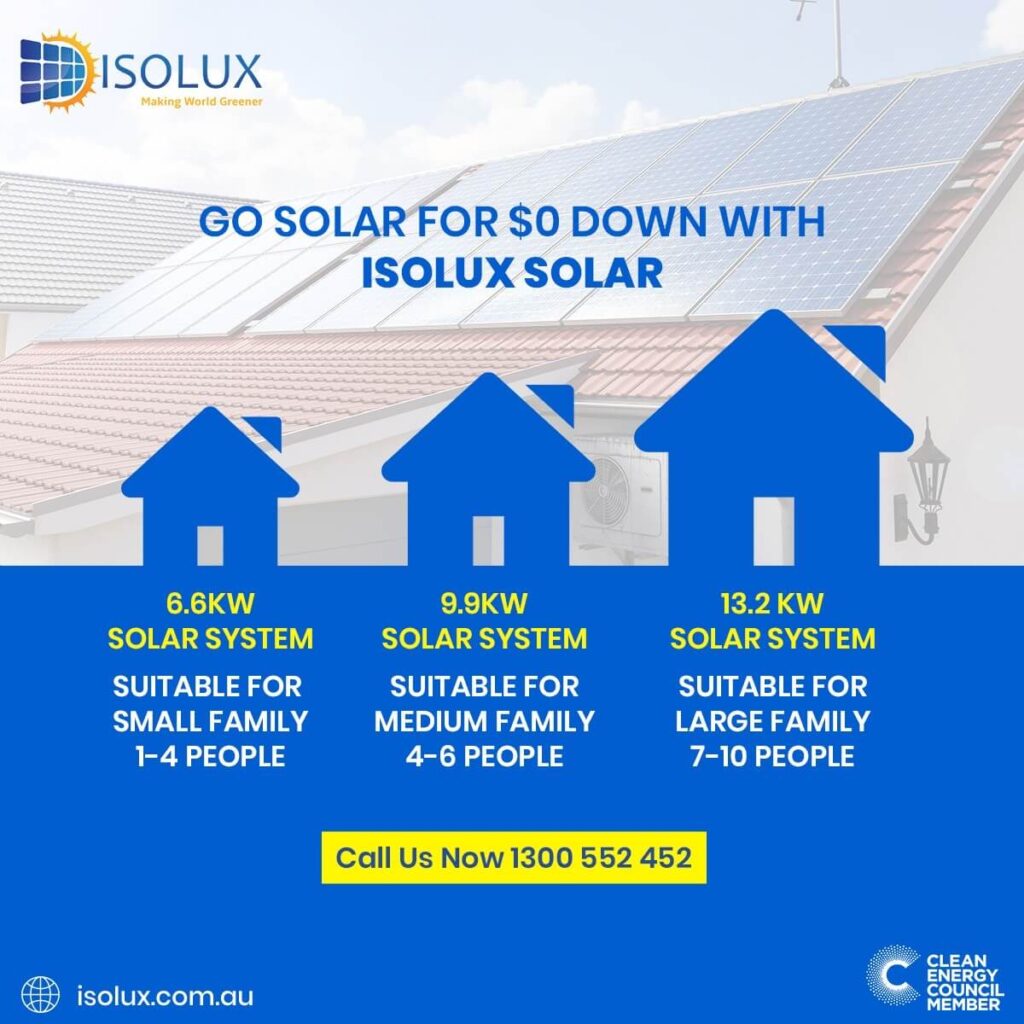
Types of Solar Panels
There are two main types of solar panels available on the market: Monocrystalline and Polycrystalline. Monocrystalline panels are made from a single crystal structure, making them more efficient and therefore more expensive. Polycrystalline panels, on the other hand, are made from multiple crystal structures, making them less efficient but more affordable.
In Sydney, the average cost of monocrystalline panels is around $2.00 per watt, while polycrystalline panels are priced at around $1.50 per watt.
Location of Solar Panel Installation
The location of your solar panel installation will also affect the final cost. Installations in Sydney’s outer suburbs may cost less than installations in the city centre, due to differences in labour and transportation costs.
Benefits of Solar Energy
Aside from the cost savings, there are several other benefits to using solar energy in Sydney. Solar panels are an eco-friendly source of energy, reducing your carbon footprint and helping to preserve the environment for future generations. They also increase the value of your home, making your property more attractive to potential buyers. Finally, solar panels are a reliable source of energy, providing you with a steady supply of electricity even during power outages.
How to Choose the Right Solar Panel?
Here is what sized solar system you need. It will help you find accurate solar panel costs in NSW:
6.6 kW Solar System
1. Ideal for a small family
2. Output generated: 9,500 – 10,500 kWh/year
3. Best suited for bills: $250 – $400
9.9 kW Solar System
1. Ideal for a medium family
2. Output generated: 14,900 – 15,330 kWh/year
3. Best suited for bills: $450 – $600
13.2 kW Solar System
1. Ideal for a large family
2. Output generated: 18,900 – 19,300 kWh/year
3. Best suited for bills: $600+
Conclusion
In conclusion, the cost of solar panels in Sydney ranges from $2,500 to $13,000, with the average cost being around $6,000. This cost includes the cost of panels, inverters, installation, and any necessary permits or inspections. The size of your system, the type of panels used, and the location of your installation will all affect the final cost. But, the benefits of using solar energy in Sydney, including cost savings, eco-friendliness, increased home value, and reliability, make it a smart investment for any homeowner.
In summary, investing in solar energy in Sydney is a smart decision that will provide you with cost savings, eco-friendliness, increased home value, and a reliable source of electricity.
Isolux Solar is one of the most popular and CEC-accredited solar installers. We will help you choose the right solar panels with battery and inverter. To initiate the conversation with Isolux, call now at 1300 552 452.
Read Next Blog:
Key Information About Solar Inverters and How Does It Work
Step-by-Step Process of Electricity Generation from Solar Panels
There are many solar panel manufacturers across the globe. However, Longi Solar is the best solar company in Australia. Interested in knowing the reasons behind it? Here is a detailed Longi solar panel review that you cannot miss. It will answer all your questions and clear your doubts.
Jinko Solar is the best solar company in Australia. Established in the year 2006, this company has come a long way in being one of the largest manufacturers of solar panels across the globe. Be it solar panel installers in Sydney or individuals living in different parts of Australia, you will hear everyone recommending Jinko when it comes to the best solar panels in Australia. Get a quick Jinko solar panel review.
Saving energy is the need of the hour. Due to increased pressure on conventional energy sources, they are getting depleted. Solar energy is one such green energy source that is being harnessed for the generation of electricity. For this purpose, a solar PV system from the best solar company in Sydney needs to be used.
Solar power is the reusable energy produced by a solar system from solar energy. According to leading solar PV installers, there are many advantages of solar power installation Sydney or any other city in the world.
